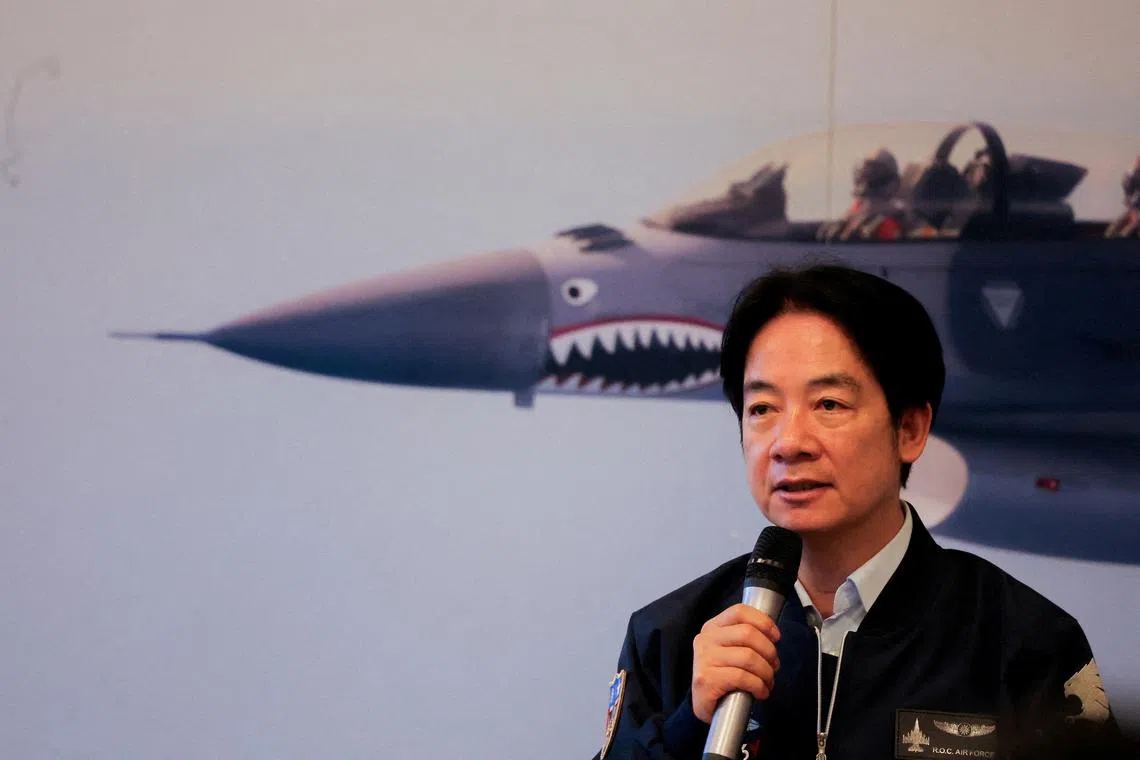Taiwan warns against travel to China after execution threat
Sign up now: Get insights on Asia's fast-moving developments

China, which views Taiwan as its own territory, has made no secret of its dislike of President Lai Ching-te.
PHOTO: REUTERS
TAIPEI – Taiwan’s government raised its travel warning for China on June 27, telling its citizens not to go unless absolutely necessary, following a threat from Beijing last week to execute those deemed “die-hard” Taiwan independence supporters.
Mr Liang Wen-chieh, spokesman for Taiwan’s Mainland Affairs Council, told reporters the raised travel warning also applied to the Chinese-run cities of Hong Kong and Macau.
China, which views democratically governed Taiwan as its own territory, has made no secret of its dislike of President Lai Ching-te, whom it views as a “separatist”, and staged two days of war games
Last week, announcing new legal guidelines, China threatened to execute Taiwan independence separatists in extreme cases, a further ramping up of tensions that drew condemnation from Mr Lai and his government, as well as the US.
Mr Liang, making the announcement at a regular news conference in Taipei, said those guidelines represented a serious threat to the safety of Taiwanese visiting China, in addition to other measures Beijing has been taking to strengthen its national security laws.
“If it is not necessary to go, then don’t,” he said, adding that this did not amount to a ban on visiting and was about protecting Taiwan’s people and reminding them of the risk rather than being a “countermeasure”.
China’s Taiwan Affairs Office did not immediately respond to a request for comment.
On June 26, asked about concerns that the guidelines could cause fear among Taiwan’s people and would not help improve relations, the office said they were aimed at only a very small number of independence “diehards’ evil words and actions”.
Beijing has vowed to go after people it views as Taiwan separatists wherever they may be, though Chinese courts have no jurisdiction in Taiwan, and it is not clear how China could seek to enforce any judgments outside its borders.
As to whether China could seek to extradite Taiwanese overseas whom it accused of separatism, Mr Liang said separatism was a political crime, and in this particular case one that was specific to China, and that developed countries would not cooperate with such a request. “We can’t rule out that certain countries would cooperate,” he added, without naming any countries.
Mr Lai has repeatedly offered talks with China but been rebuffed. He rejects Beijing’s sovereignty claims and says only Taiwan’s people can decide their future. REUTERS


